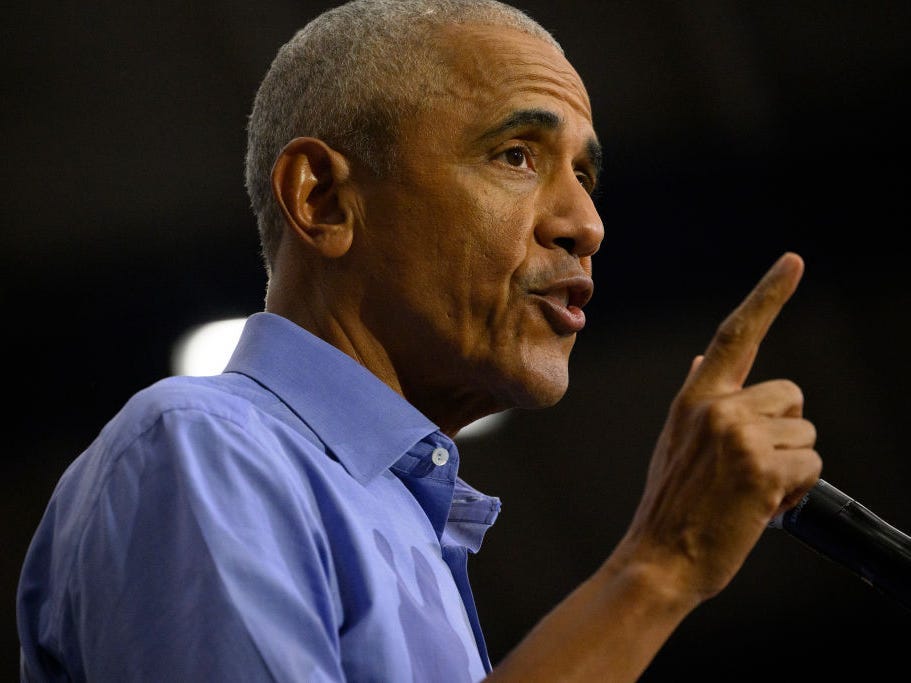Former President Barack Obama’s recent comments during his campaign efforts for Vice President Kamala Harris have stirred debate regarding Black male voters’ support for a female presidential candidate. As the election approaches, Obama criticized some Black men for what he perceived as excuses for their reluctance to support Harris, pointing to underlying issues related to gender and representation. He stated, “You’re coming up with all kinds of reasons and excuses,” suggesting that these rationalizations might stem from discomfort with the idea of a woman in the presidency. This assertion adds to the ongoing discussion about loyalty among Black voters to the Democratic Party, as well as the potential impact of any declines in support in the upcoming election, particularly considering former President Donald Trump’s efforts to appeal to this demographic.
The importance of Black voter support is underscored by historical voting patterns, with Obama’s 2008 campaign heavily reliant on a coalition that included significant backing from Black and young voters—key cohorts that Harris will need to mobilize for a successful run in November. During his remarks in Pittsburgh, Obama emphasized the significance of Black male support, pointing to polls indicating a gender gap where Harris holds a commanding lead among women but faces challenges with male voters. This gap is particularly pronounced with white men, who show strong support for Trump, a factor that could potentially sway key states crucial for victory.
The New York Times/Siena College poll highlighted the dynamics within the Black voter landscape, revealing that while Harris has garnered 78% support from Black likely voters, there remains a noteworthy proportion of 15% backing Trump, with Black men supporting Harris at a rate of 70%. Despite this majority, the fact that one in five Black male likely voters are leaning toward Trump represents a worrying trend for Democrats. Obama’s comments have sparked backlash from some quarters, with critics asserting that singling out Black men is inappropriate and undermines the broader reality that Black voters generally show strong allegiance to Democratic candidates.
Prominent voices within the Democratic Party, such as former Ohio state senator Nina Turner, viewed Obama’s approach as patronizing. Turner pointed out that Black men have historically been reliable voters for Democrats, and any perceived condescension could alienate an essential component of the party’s base. The necessity of addressing the specific attitudes and concerns of Black male voters was highlighted, stressing that their decisions must be respected even if they diverge from party lines. The demographic’s voting patterns reveal that while they have remained loyal, there are nuances that Democrats must address, particularly in light of Trump’s attempts to connect with these voters.
Historically, Black voters have demonstrated considerable support for Democratic candidates, evidenced by statistics from previous elections where Black women had turnout rates above 90% for candidates like Hillary Clinton and Joe Biden. However, the dynamics can shift, as seen in the 2016 election when Black male support for Trump was notably higher than that of Black women. As such, any erosion of Black male support could be pivotal, especially in key battleground states where margins are tight. The emphasis on local engagement and outreach is vital for Democrats to ensure historically high turnout among Black voters in all demographics.
With the election looming closer, the Democratic Party must navigate the complex interplay of race, gender, and electoral dynamics. Harris’ campaign is at a critical juncture, requiring not just the retention of existing support but the mobilization of targeted outreach to win over hesitant voters, particularly Black men, who may feel underrepresented. Obama’s admonition serves as a reminder of the stakes involved, yet it also underscores the need for a more nuanced understanding of voter sentiments and the challenges posed by both historical loyalty and emerging preferences within the electorate. With the stakes higher than ever, Harris’ efforts will ultimately determine the outcome of her bid for the presidency, amid the balancing act of maintaining coalitions while addressing individual voter concerns.

